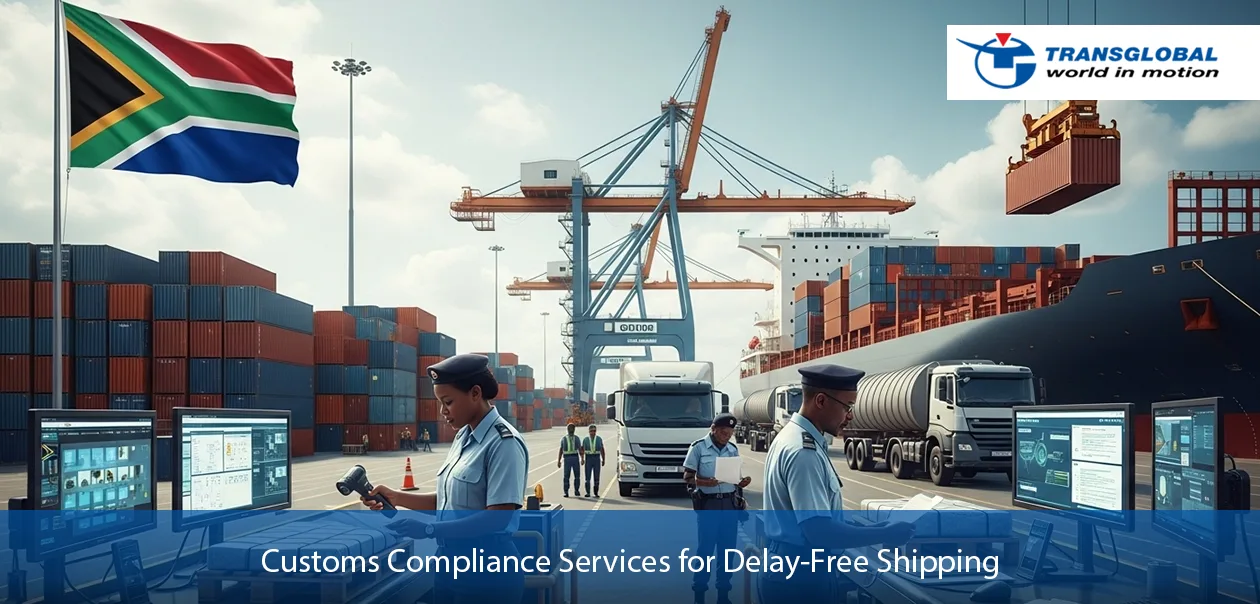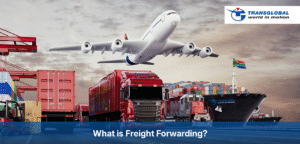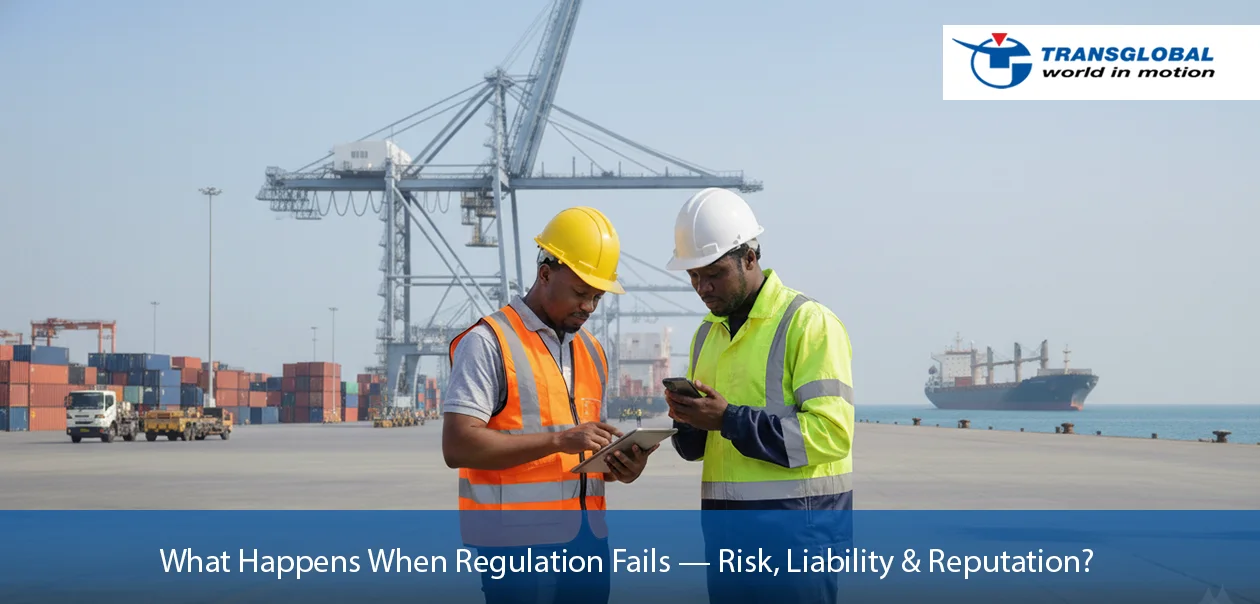Customs isn’t just a checkpoint, it’s a gatekeeper. And in international trade, delays, fines, or incorrect paperwork can shut that gate faster than you think. For African businesses importing, exporting, or moving cargo cross-border, customs compliance isn’t optional, it’s critical.
That’s why choosing the right freight forwarder is important. At Transglobal Cargo, we help businesses stay ahead of customs challenges through full documentation, tariff management, and special cargo support, making sure your goods don’t get stuck in limbo.
Here’s what every logistics decision-maker should know about navigating customs in Africa the smart way.
What Does Customs Compliance Actually Involve?
Customs brokerage means ensuring your shipments meet all legal, procedural, and tariff requirements when moving goods across borders.
In Africa, this involves:
- Preparing and lodging full import and export declarations
- Correctly classifying goods to avoid duty errors
- Applying for special cargo permits and clearances
- Staying updated on national customs rulings
- Managing bonded cargo or temporary imports without penalties
- Claiming duty drawback where eligible
Without these in place, even the most efficient freight plan can unravel at the border.
When Do Businesses Need Help with Customs Compliance?
You need expert customs clearance support in several cases, such as:
- Launching cross-border trade from South Africa to Zimbabwe or Kenya
- Importing construction machinery or chemicals into Namibia or Mozambique
- Moving Hazchem, defense, or bonded cargo under tight regulations
- Classifying goods accurately to avoid surprise tax bills
- Claiming a duty drawback after re-exporting goods
- Temporarily bringing goods into the country for events, exhibitions, or maintenance
This is where Transglobal Cargo provides the difference, not just logistics, but logistics with legal clarity and regulatory accuracy.
What Services Should You Expect from a Customs Expert?
Let’s break down the core customs compliance services that every international trader in Africa should prioritize:
Full Import and Export Declarations
We prepare, verify, and lodge all the required paperwork, commercial invoices, HS codes, packing lists, certificates, and customs codes, to ensure smooth movement and clearance. Whether it’s general cargo or specialized materials, your documents are always correct, on time, and audit-ready.
Tariff & Tax Management
Misclassification leads to overpayment or under-declaration penalties. Our team uses the correct Harmonized System (HS) codes, understands regional exemptions, and helps you avoid compliance red flags. You only pay what’s necessary, no more, no less.
Special Cargo Support
We handle clearance and compliance for bonded goods, vehicle shipments, Hazchem cargo, and defense-sensitive materials. From permit applications to port inspections, we ensure you’re covered at every regulatory checkpoint.
Temporary Importation
Bringing goods in for a short time? Whether it’s for a trade show or a temporary project, we’ll handle the paperwork and ensure your cargo qualifies for duty-free status under applicable temporary importation laws.
Customs Warehousing
We coordinate with bonded warehouse facilities, so you can delay duty payments until goods are sold or cleared for local use. This keeps your capital free and your inventory flexible, especially useful for importers with variable distribution timelines.
Duty Drawback Services
Did you import something, pay duties, then re-export it? You may be eligible to reclaim that duty. We help clients track, document, and apply for duty drawbacks, so they don’t leave money on the table.
National Customs Rulings
Different African countries have unique interpretations of tariff codes and exemptions. Our local compliance specialists stay on top of these national rulings, so you don’t get caught off guard by changing rules in places like Botswana, Kenya, Angola, or Zambia.
Why Customs Errors Happen (and How We Prevent Them)?
Many businesses face issues at customs due to:
- Wrong HS code = Overcharged or underpaid duties
- Incomplete declarations = Delays or returns at the border
- Missing permits for special cargo = Seizures or fines
- Ignorance of local rulings = Unexpected documentation requests
Transglobal Cargo prevents this with a three-layered approach:
- Pre-departure compliance check
- Live customs coordination during transit
- Post-arrival audit support and recordkeeping
We’ve built this process to work across the Southern, East, and Central African corridors, so your goods never get stuck due to paperwork.
Real Challenges We Help Solve Across African Borders?
African importers and exporters often deal with:
- Border bottlenecks caused by missing or inconsistent documentation
- Incorrect tariff classifications that inflate import costs
- Lengthy approvals for bonded or special cargo
- Lack of transparency in duty refunds or drawback systems
Our job is to bridge the gap between logistics and legal compliance, ensuring that your cargo flows without friction.
What Can You Do to Stay Customs-Compliant?
If your business relies on smooth cross-border trade in Africa, here’s what to do:
✅ Always review HS code classification before shipping
✅ Don’t rely on templates, customs paperwork must be tailored to the cargo
✅ Use a certified freight forwarder with a compliance and documentation team
✅ Stay informed about changing customs laws, tariffs, and exemptions
✅ Partner with a team like Transglobal Cargo to handle special cargo and bonded movements
Conclusion
Getting customs right is more than ticking boxes. It’s about protecting your bottom line, avoiding legal issues, and keeping your supply chain uninterrupted. Whether you’re importing bonded cargo, moving Hazchem across borders, or exporting under a special permit, customs compliance is where it all begins.
At Transglobal Cargo, we help you stay ahead of every declaration, permit, classification, and ruling, so you can move your cargo without guesswork or gaps.
Need help with African customs clearance, duty classification, or special cargo permits? Contact Transglobal Cargo today.
Frequently Asked Questions
What’s the difference between a commercial invoice and a customs declaration?
A commercial invoice provides value and product details; a customs declaration is a formal document submitted to border authorities with tariff and classification data.
How do I know if my cargo qualifies for duty drawback?
If your goods were imported and then re-exported, you may be eligible for a duty refund. Our team can verify eligibility and help with the refund process.
What is temporary importation, and how do I apply for it?
Temporary importation allows you to bring in goods without paying full duties if they’ll be re-exported later. We handle the documentation and submission for approval.





Comments